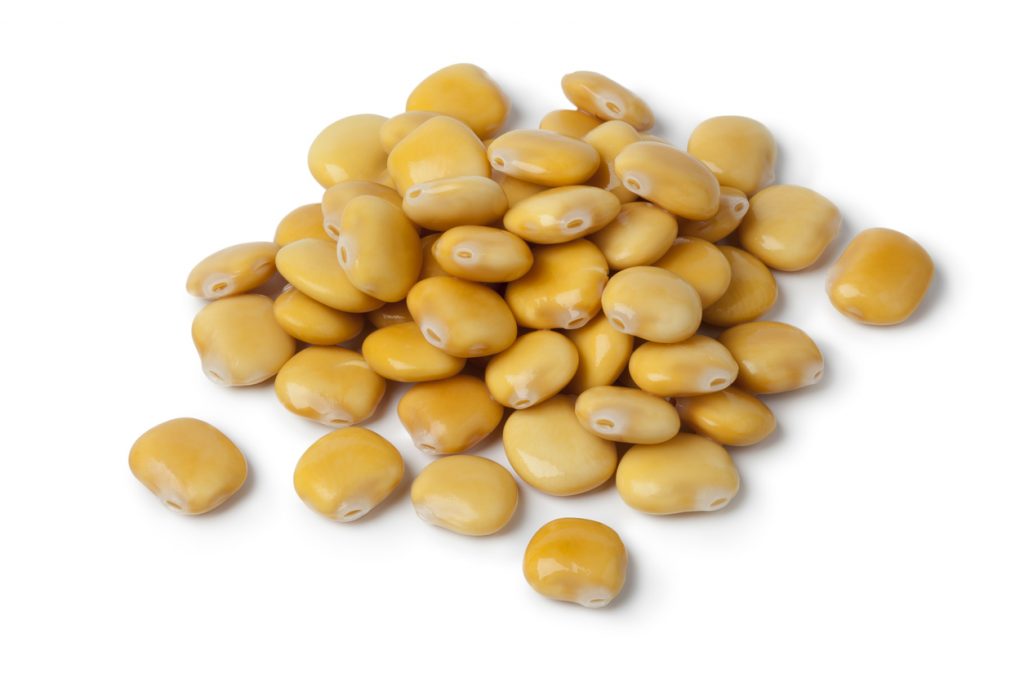In June, we reported on a recent advisory on lupin allergy by Health Canada and the Canadian Food Inspection Agency (CFIA). The aim of the advisory was to notify Canadians, especially those with peanut allergy, about the possible risk of consuming lupin, a legume that is botanically related to peanuts. Another key concern is that lupin itself has been known to cause allergic reactions in some individuals whether or not they have a peanut allergy. As a result, this is an emerging allergen to watch.
Lupin is cultivated for use in animal feed in many countries, but the seeds are also used in processed food products. For example, the seeds may be processed into flour and used in baked goods, particularly in Europe, or in chicken bouillon cubes, and dehydrated soup.
The article below provides you with more information on lupin allergy.
Who is at risk of lupin allergy?
Although it is possible for anyone to experience allergic reactions to lupin, most reactions that have been reported to date have been experienced by individuals with peanut allergy.
The status of lupin as an allergen in Canada
Although lupin is a priority allergen in the European Union, lupin (e.g., lupin flour) has only recently begun appearing in Canadian food products. Lupin must be listed in the ingredient list on the labels of pre-packaged food products if it is an added ingredient. However, it is not a priority allergen in Canada, therefore food manufacturers are not required to declare it in a “contains” statement, or if it is a derivative (part of a part) of another ingredient.
Lupin and peanut allergy – how are they connected?
Research has shown that some people who are allergic to peanut also react to lupin. Both are legumes, and one study revealed an allergenic protein in lupin flour that was similar to one found in peanuts. Another study showed a positive skin prick test to lupin in approximately one third of individuals with peanut allergy. A different study revealed that nearly 50% of 24 individuals with peanut allergy tested positive to lupin. Some of these individuals were fed lupin in a medical setting, and six out of seven individuals with positive skin test results experienced allergic reactions to lupin.
Overall, not all individuals who are allergic to peanuts will react to lupin, and skin prick testing alone does not confirm a food allergy, but these studies highlight that lupin may be an allergen for some individuals. If you have questions about lupin, please speak to your allergist, who can discuss testing options with you. Health Canada has advised that individuals with peanut allergy should avoid ingesting foods containing lupin until they consult with their allergist.
Products containing lupin generally take the form of lupin flour used as an ingredient in a variety of baked goods including pastries and pies, cookies, pancakes, pizza crust, breaded coatings on such products as onion rings, chicken bouillon cubes, dehydrated soup, or even in vegetarian products where lupin may be used as a protein source (e.g., meatless burgers). Lupin is most likely encountered in health food stores, the natural foods sections of grocery stores, and in gluten-free products.
As always, it is vital to both read ingredient labels carefully every time you shop for groceries, and to ask about the ingredients contained in any baked or breaded items served in restaurants – particularly those serving European cuisine, where imported items may be on the menu, or where gluten-free options are served.
Lupin and travel
Lupin is an ingredient in certain European food products. While the inclusion of lupin on the list of European priority allergens helps make food shopping easier (especially if you’re staying in a hotel with a kitchenette, where you can prepare your own meals), it may not be as easy to find out whether lupin is contained in foods served by restaurants and street vendors. If you have any doubts about ingredient information you’ve been given by your server, play it safe, and choose a different menu item or don’t eat there. And of course, if you have a known food allergy, be sure to carry your epinephrine auto-injector(s) everywhere you go, whether on your travels, or at home in Canada.
Key points
- If you or a family member are allergic to peanuts, you may also react to lupin.
- Anyone can be allergic to lupin, with or without peanut allergy, though people with peanut allergy appear to be at higher risk.
- Health Canada is advising that consumers allergic to peanuts avoid products containing lupin until they have consulted with their allergist.
- If you are allergic to peanuts, take special care to look for lupin in the ingredient list on pre-packaged food product labels.
- Lupin flour may be found in a variety of baked, breaded, vegetarian, and gluten-free products.
- Lupin is listed as a priority allergen in the European Union, but not in Canada.
- When travelling, especially on trips to Europe, look for lupin in the ingredient list on pre-packaged food product labels.
Read the lupin advisory from Health Canada and the CFIA.
Tags: lupin allergy
